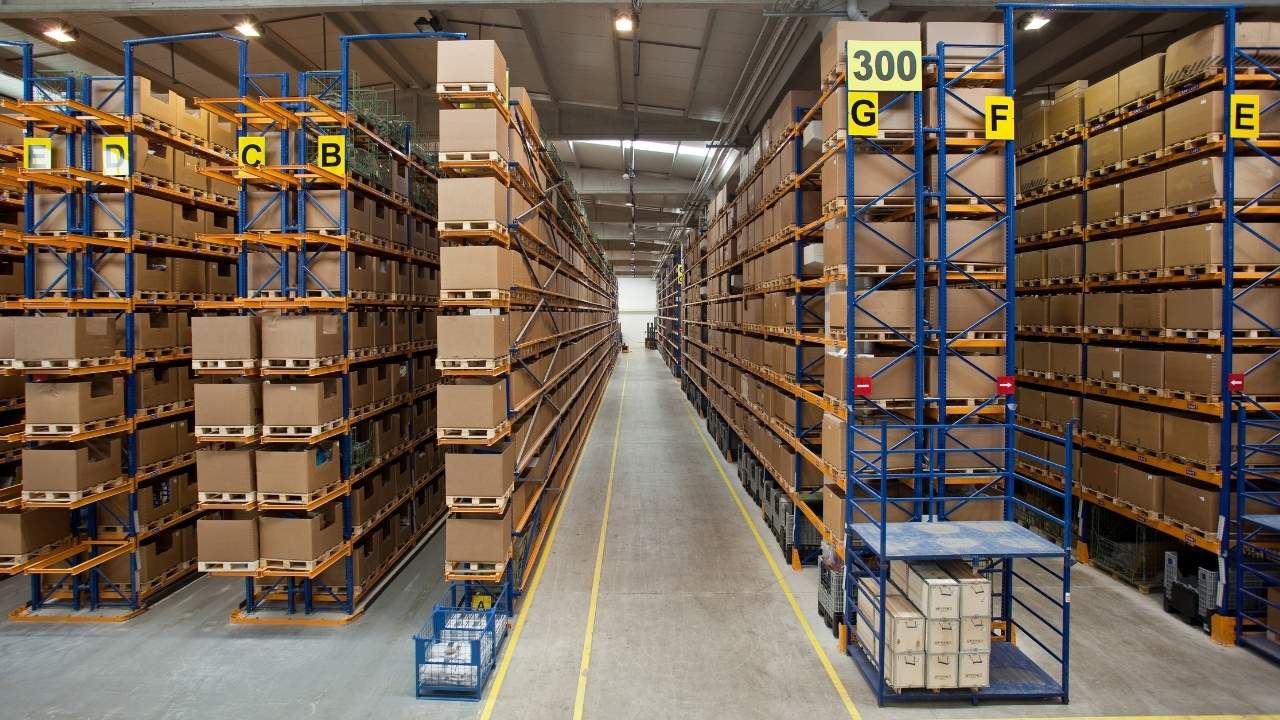Versa Cloud ERP has an inbuilt Production Planning feature designed to optimize a business manufacturing process
Smooth manufacturing operations hang on production planning – that crucial first step that lays the groundwork. Get it right, and you maximize efficiency. Get it wrong, and it spells trouble. However, many manufacturers today still rely on tribal knowledge and messy spreadsheets for planning. With complex, fast-changing production environments, these manual methods cause inconsistencies that directly hit the bottom line. This article explores how a modern digital platform like enterprise resource planning (ERP) software with integrated manufacturing capabilities can profoundly transform production planning.
Production Efficiency with an ERP Solution: Demystifying Production Planning
Production planning strategically determines the workflow, resources, inventory, and timelines required to manufacture products as per business requirements. By balancing production costs, speed, quality, and compliance standards, optimal plans aim to deliver high customer service levels despite constraints. Accurate planning minimizes wasteful spending on excess raw materials, equipment capacity, or labor overhead. Thus, production planning directly impacts profitability and the ability to adapt to market changes.
Unfortunately, production planning has grown highly complex, with globalized supply chains, compressed product life cycles, stricter regulations, and competitive pressures to launch innovative offerings faster. Traditional paper-based planning methods with retrospective data no longer suffice. Modern manufacturers need real-time planning orchestration across departments to handle dynamism.
This is where a connected digital solution like ERP proves invaluable to the production process
ERP Solution as the Brain for Holistic Production Planning
ERP software consolidates all business information into a single unified platform spanning departments and partner ecosystems. For manufacturers, ERP integrates operational data across the value chain – from raw material procurement, production scheduling, inventory control, and quality management to order fulfillment.
Built-in data analytics and process automation then optimize planning decisions leveraging real-time data. Machine learning algorithms apply constraints and historical trends for realistic planning. Standardized workflows ensure consistent execution across diverse production environments. With an intelligent digital planning backbone like ERP, production managers can shift from reactive firefighting to predictive controlled optimization.
Core Capabilities to Streamline the Production Process
While ERP enables over 300 pre-built business processes, the solution offers several dedicated manufacturing modules:
Bill of Material (BOM) Management
The bill of materials is the ingredient list for any product being manufactured. ERP tools help optimize BOM planning by tracking real-time component availability, lead times, and costs. Engineering change orders automatically update BOM revisions across production planning.
Shop Floor Control (SFC)
The SFC module monitors all assets and workflows on the production line. Machine sensors and worker devices capture granular data on cycle times, failures, downtime, and scraps. This provides planning managers unprecedented visibility into real production capacity and constraints for decision-making.
Quality Management
Built-in quality inspection protocols tied to production workflows ensure consistent standards. Statistical Process Control analytics on collected quality data facilitate preventive corrections when metrics deviate from norms. Comprehensive traceability tools accelerate root cause analysis and containment.
Manufacturing Intelligence
Advanced pattern recognition and predictive algorithms enable scenario planning evaluations. What-if analysis on new product launches, demand changes, and resource allocations empowers planners to make data-driven decisions aligned with strategic targets.
The collective impact of these ERP capabilities is transformational for production planning and execution – enhancing agility, minimizing waste, and driving continuous improvement.
Revolutionary Benefits of ERP Solution-enabled Production Planning
1. Optimized Material Requirements Planning
ERP automates material planning using dynamic demand forecasts, lead times, and reorder points to ensure timely availability, thus eliminating shortages. Excess inventories are also prevented across both raw materials and WIP.
2. Improved Labor Productivity
With automated workflows and access to centralized latest data, planners save significant time otherwise spent in administrative tasks. Avoiding delays also improves manpower efficiency.
3. Maximized Asset Utilization
Real-time equipment availability data facilitates optimum production scheduling to maximize utilization rates. Overall Equipment Effectiveness (OEE) metrics help identify underperforming assets.
4. Enhanced Quality and Compliance
Inbuilt quality protocols minimize defects and traceability aids root cause analysis for preventive actions. Digital change control enhances product compliance.
5. Higher Output and Customer Service
Accurate planning aligned with the latest demand signals improves promise date reliability. ERP helps achieve on-time in-full key performance indicators.
6. Continuous Improvement Culture
With ERP analytics into variance root causes and scenario planning, a data-driven environment for continuous process improvements is cultivated. Thus ERP software provides breakthrough capabilities for manufacturers seeking operational excellence through production planning transformation. Let us explore ERP tools for some specific planning aspects.
BOM Management in an ERP Solution
The bill of materials lists all sub-assemblies, parts, and raw materials required to manufacture finished products along with precise quantities needed.
Versa Cloud ERP also enables users to define operations, sequences, work centers, and resources for their BOM.
Understanding BOM Structure
A BOM structure organizes all the components under a parent-child relationship, with the main assembly as the parent and layers of sub-assemblies and parts as children. The data for every item includes cost, lead time, manufacturer details, inventory levels and quality specifications. By centralizing BOM information digitally within the ERP, manufacturers gain total visibility for engineering change control, rationalizing parts for standardization, and identifying cost optimization opportunities.
Versa Cloud ERP has a powerful multi-level BOM module, that can be customized and adjusted at any stage of the T0-Stock or To-Order process to accurately specify which raw materials are to be used at each step as well as capture all material and labor costs.
Benefits of Digital BOM Management
Transitioning from decentralized paper-based BOM records to an integrated ERP system unlocks various benefits:
- Enhanced visibility into product designs – By consolidating dispersed BOM documents, product engineers can analyze designs holistically.
- Streamlined change management – Engineering change orders automatically update ERP-managed BOMs instantaneously, avoiding manual coordination.
- Fewer production disruptions – Digital BOM change control prevents component mismatches by aligning parts to the latest approved revisions.
- Improved uptime – Accurate BOM data ensures procurement orders components correctly, minimizing shortages-induced line stoppages.
With ERP, BOMs transform from static documents to dynamic digital product models, enabling responsiveness to market changes.
Work Order Planning and Tracking with ERP
A work order bundles all the production paperwork details required for operators to execute manufacturing orders. Details include quantity to build, bill of materials, equipment assignments, machine programming code, completion timelines and quality protocols.
Digitally creating, scheduling, and dispatching work orders via ERP improves process consistency. Real-time tracking of production counts and test measurements tied to orders enhances visibility for mid-course corrections.
Streamlined Work Order Planning
ERP allows planners to rapidly create work orders by product type, pulling bills of materials, operations sequencing, and quality checks automatically into the template for customization if needed. With an integrated platform, work order data seamlessly flows into downstream functions like inventory control and shipping.
Automated Scheduling and Progress Monitoring
As work orders are issued and production data is captured from connected machines, ERP dynamically updates delivery timelines considering material constraints. Dispatch lists are optimized for machine utilization. Upstream processes are aligned to stages based on priorities. If delays risk on-time completion, automated alerts enable mid-course realignment.
By orchestrating work orders holistically, ERP transforms planning agility. Output delays are minimized through data-driven decision-making.
Production Monitoring for Actionable Insights
Connecting manufacturing equipment like CNC machines, label printers, and automated test rigs to ingest data directly into ERP unlocks new possibilities:
- Understanding capacity utilization patterns and constraints
- Identifying quality trends through longitudinal analysis
- Exploring variability correlation with environmental factors
- Enabling predictive maintenance for uptime improvements
- Performing what-if analysis for continuous enhancements
While ERP unlocks invaluable benefits, realizing the full potential requires an optimal implementation tailored to your infrastructure.
Versa Cloud ERP provides comprehensive yet affordable capabilities designed specifically for the manufacturing sector.
Schedule a free personalized demo with Versa Cloud ERP today to witness these production planning transformation enablers customized for your environment. The no-obligation consultation will help identify specific areas of efficiency opportunities across technology, processes, and data analytics.
Q&A: Streamlining Production Planning with an ERP Solution
1. How does ERP improve visibility for production scheduling?
ERP offers real-time visibility into work order status, equipment availability and material constraints enabling dynamic optimization of production schedules.
2. What key manufacturing metrics can ERP help improve?
ERP improves overall equipment effectiveness (OEE), on-time delivery, inventory turns, and first-pass quality through data-driven planning.
3. How can ERP reduce delays and downtimes?
Inbuilt preventive maintenance alerts based on runtime analytics minimize downtimes while SFC helps reduce changeover delays via automated dispatching.
4. Can ERP help measure labor productivity?
Yes, digitized worker processes coupled with shift reporting tools allow tracking manpower utilization to identify productivity improvement areas.
Empower your Shopify business with the knowledge to navigate the realm of an Integrated ERP solution, specifically tailored to logistics, inventory and warehouse management, and POS needs. Gain insights, streamline processes, and propel your financial management to new heights with this comprehensive guide
With Versa Cloud ERP’s Implementation guide learn how a business can ensure a successful ERP Solution Implementation. Navigate the complexities of implementation with confidence!
A Small Business in the modern day with Omnichannel Retail is complex and requires resources to deliver on its goals and achieve its full potential. To create a small business success story business owners need an ERP Solution that grows with them.
Effectively manage your financials, accounting, inventory, production, logistics, and warehouse management workflows with our award-winning ERP.
Let Versa Cloud Erp’s do the heavy lifting for you.
[widget id=”custom_html-40″]
[widget id=”custom_html-42″]
[widget id=”custom_html-30″]
Do Business on the Move!
Make your businesses hassle-free and cut the heavyweights sign up for the Versa Cloud ERP today!!
Join our Versa Community and be Future-ready with us.
[widget id=”custom_html-20″]






